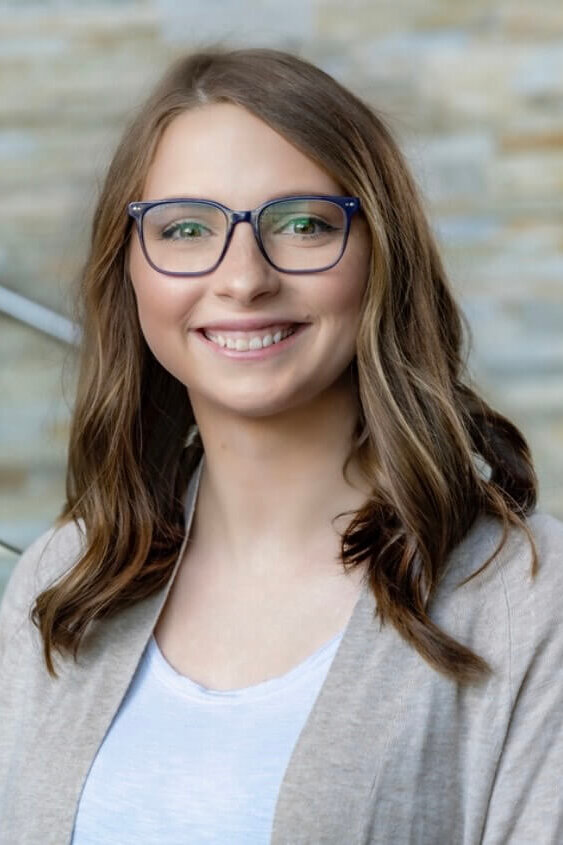
Carli Weiler
卫生服务总监
cweiler@batesville.k12.in.us
Daily nursing responsibilities and activities
- Promote health and safety
- Intervene with actual and potential health problems
- Provide case management services
- Actively collaborate with others to build student and family capacity for adaptation, self-management, self-advocacy and learning
- Partner with outside agencies: Margaret Mary Health, Southeastern Indiana YMCA, Lions Club, Mobile Dentist, Ripley County Health Department and others
Programs that the School Nurses schedule and organize
- Head Lice education and screenings
- Body Mass Index, Height, and Weights grades K-10
- Hand Washing program grades K-8
- Blood Pressure checks for grades 1-10
- Vision Screenings K, 1, 3, 5, 8
- Hearing Screenings
- Mobile Dentist for those interested
- Organize flu clinics K-12
- Staff are educated in Blood Borne Pathogens, use of Epi-Pen, and Seizure first Aid. Also Certified in CPR/AED/Choking
- Coordinated School Health Program, which is an approach to school health that improves student health wellness and their capacity to learn through the support of families, schools and communities, all working together.
Nurse and Clinic
Students who become ill or injured at school should obtain a pass from their teacher to visit the nurse for an assessment. Students may visit the nurse without a pass in the morning and at lunchtime. Students are permitted to leave school grounds due to illness ONLY with the approval of the nurse. It is against school policy to call home on your own and arrange to be picked-up by someone. Students should not come to school with a temperature of 100 degrees or above. Students’ temperature should be below 100 degrees without fever reducing medication and they should be fever free for 24 hours before attending school. Students need to be assessed by parents before leaving home and medicated accordingly. Injuries occurring after school hours need to be addressed by parents and/or the family physician. Elevator passes are only given out with a doctor’s note or at nurse’s discretion.
Medications taken at school
It is the student’s responsibility to come to the clinic to take all medication.
- No medicine prescribed by a physician shall be given to a student without written consent of the physician AND parent. (BCSC 6.0-31.)
- It is the responsibility of the parent/guardian or designated adult to make sure that medications are delivered safely to the nurse. IC 20-34-3-18 medication that is possessed by a school for administration during school hours or at school functions for a student may be released to: the student’s parent or an individual who is at least eighteen years of age; and designated in writing by the student’s parent to receive the medication. A school corporation may send home medication that is possessed by a school for administration during school hours or at school functions with the student if the student’s parent provides written permission for the student to receive the medication.
- A copy of the original prescription or a physician’s permission form must be on file. All prescribed medicines must have the pharmacy label on the ORIGINAL CONTAINER. This includes all medicines, inhalers and epi-pens. The school may contact the physician if there are any questions regarding the medication ordered for the well-being of the student.
- Medication must be administered in accordance with the physician’s prescription. The dosage cannot exceed the recommendation of the Physicians Desk Reference. Any changes to doses or time of dosage must be given to the nurse in writing and signed by the physician.
- ONLY antibiotics that are prescribed to be given 4 times a day will be given at lunch.
- Non-prescription medicines (over-the-counter) will be dispensed with parent/guardian written permission. This permission will be for the period of time specified and NEVER longer than the current school year. The note should contain: the date, name of student, name of medication, and amount given, time to be given, and the times the medication was last given. All medicines are to be delivered in a new, UNOPENED container with the student’s name on it.
- Self-administered medicines, such as inhalers, epi-pens and insulin, must have a physician’s order stating that your child has been instructed on how to administer the medication and that they can carry it on them. The nurse needs to know the location of inhalers (example: locker, purse or backpack). This is according to I.C. 20-8.1-5.1-7.5 和 7-22.
- No student is to have ANY medication on them. Cough drops and throat lozenges may be brought from home with nurse approval prior to the start of school.
- Unless other arrangements are made, medications left at the end of the year will be disposed of.
- 如果您的孩子进行实地考察和/或参加体育运动, 他们将需要能够在紧急情况下管理他们的药物. 例子是吸入器, epi-pens and insulin. 如果这应该是一个问题,家长/监护人应该在此类事件期间在场.
- It is the student’s responsibility to come to the clinic to take all medication.
- 非 FDA 批准的产品, 草药/膳食产品, 在国外购买的药物, 或非传统制剂 (包括但不仅限于: 维生素, 补充剂, 顺势疗法, 和精油) 不会由学校人员管理. Medication will not be given if not prescribed by a medical physician.
For additional information about the Health Services Department, contact Director of Health Services, 盖拉·冯德海德.